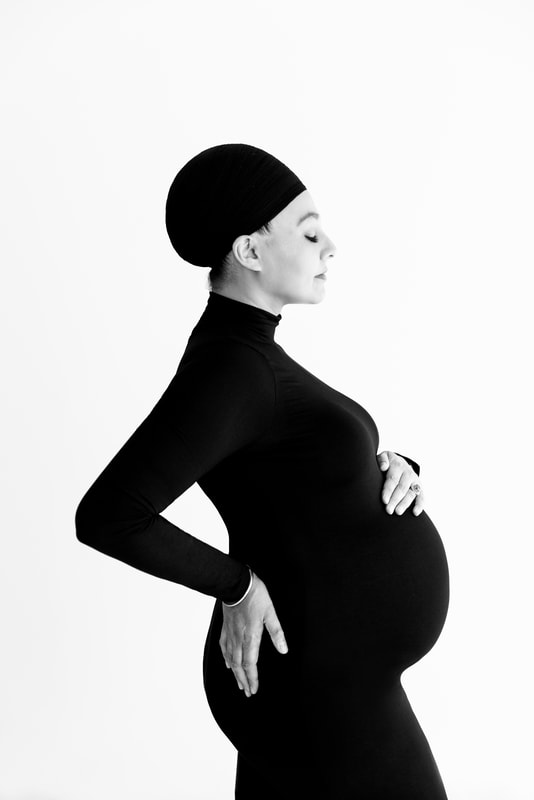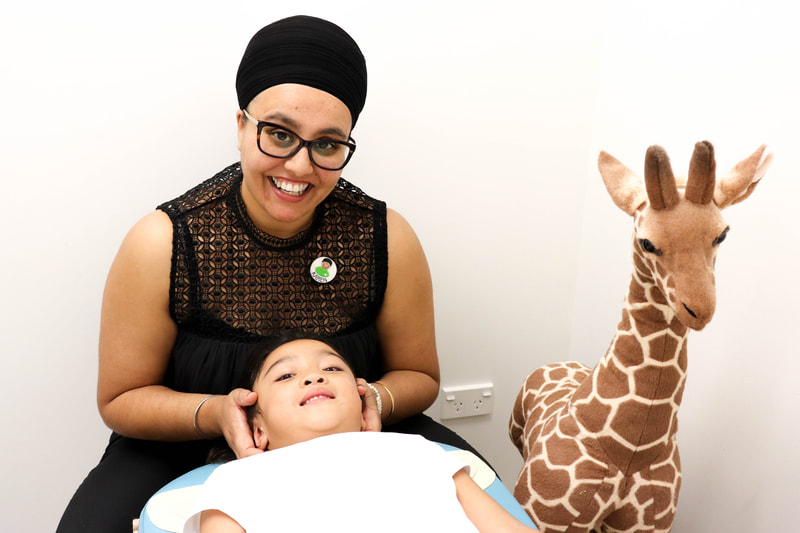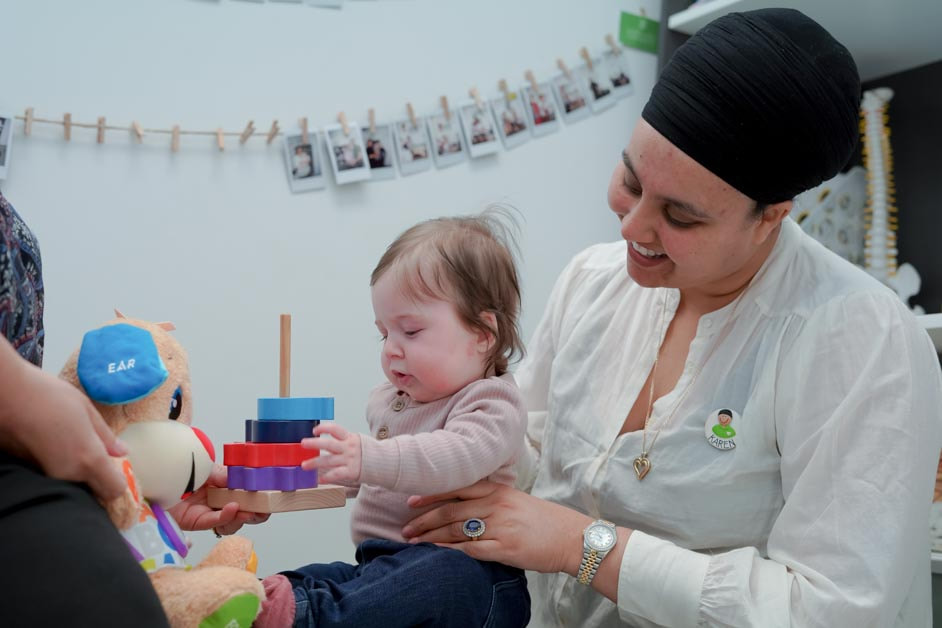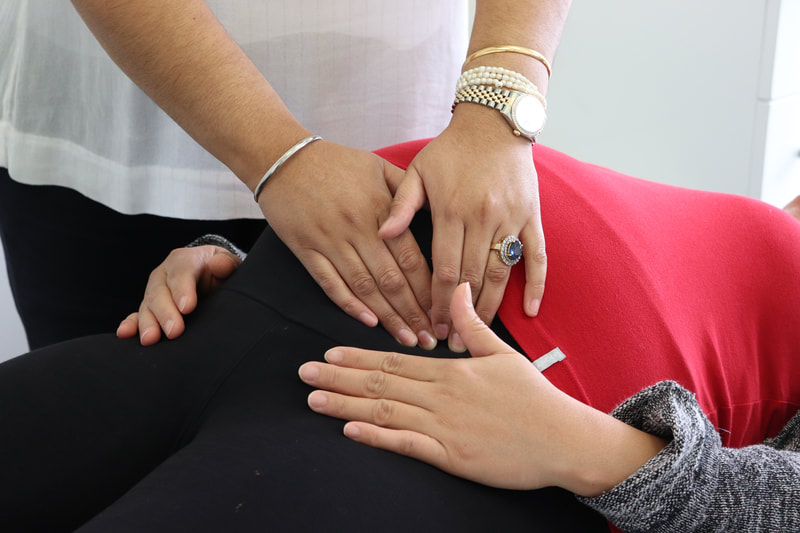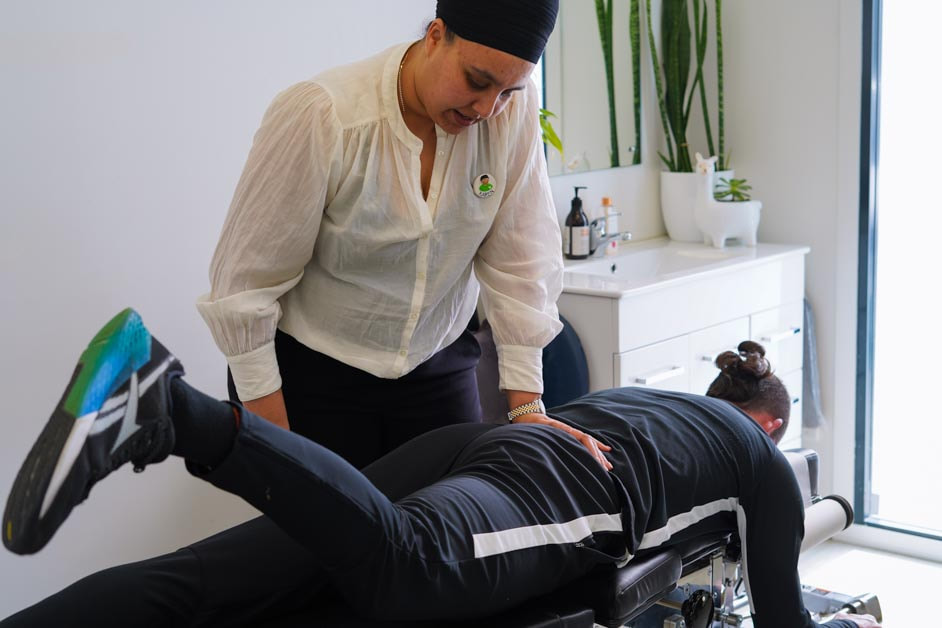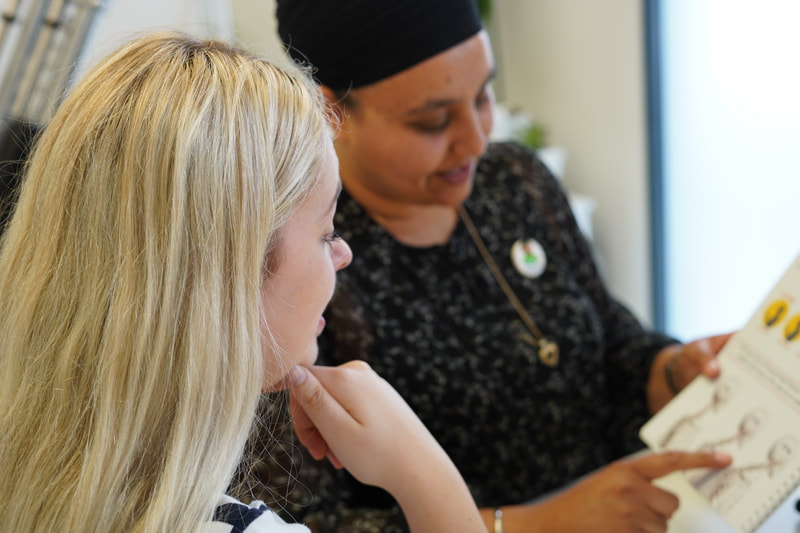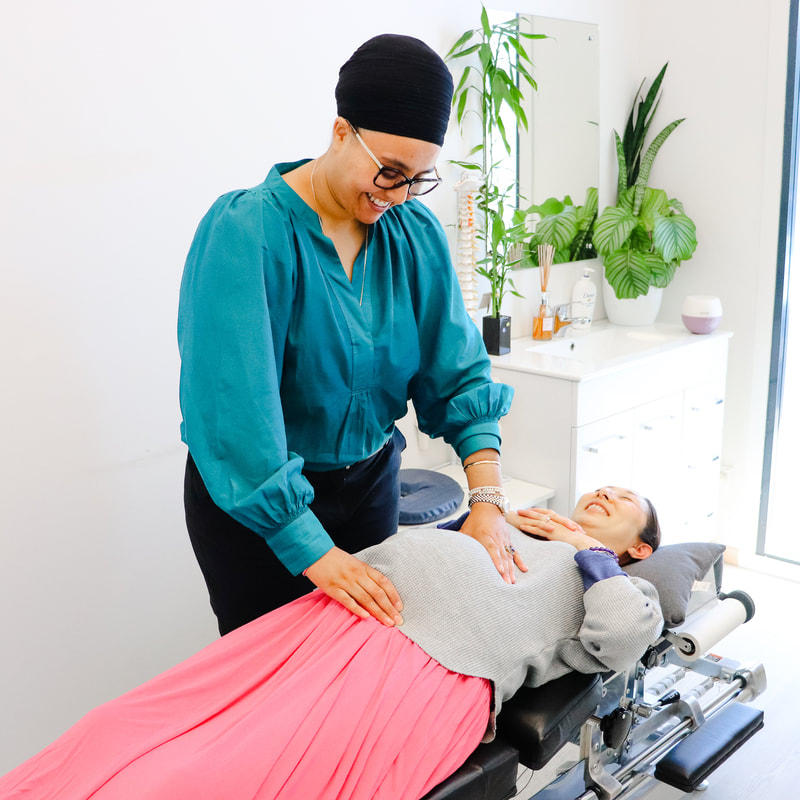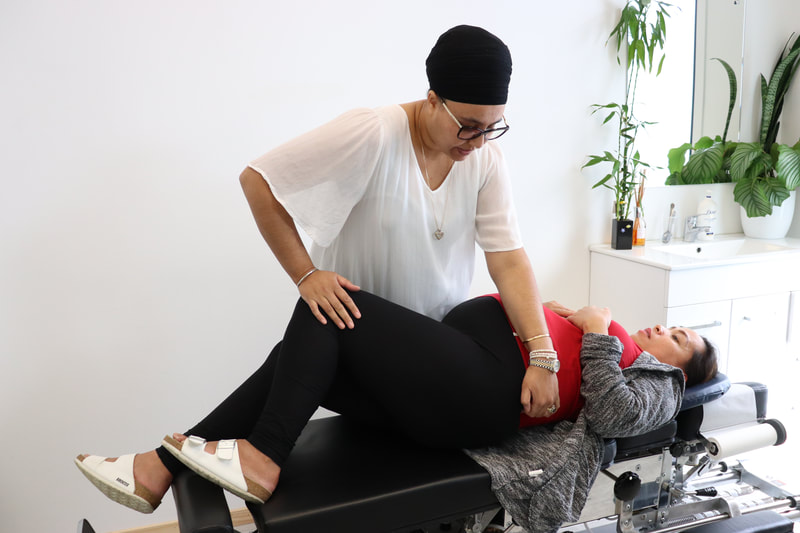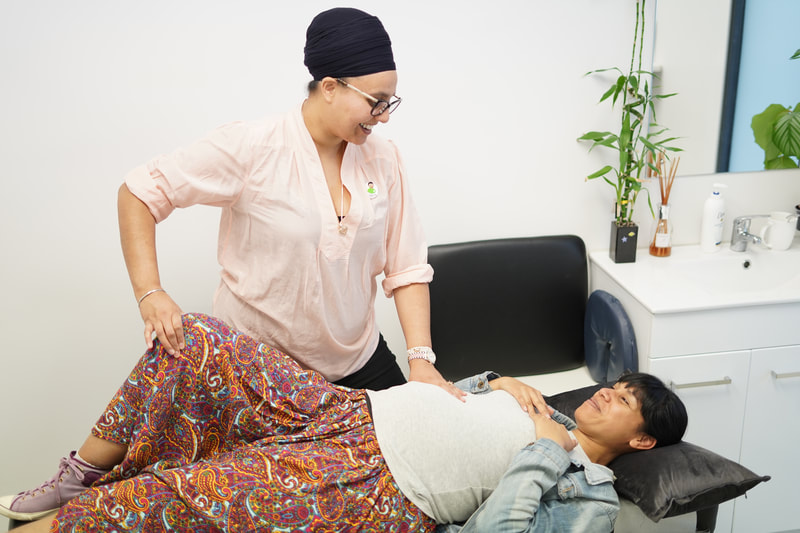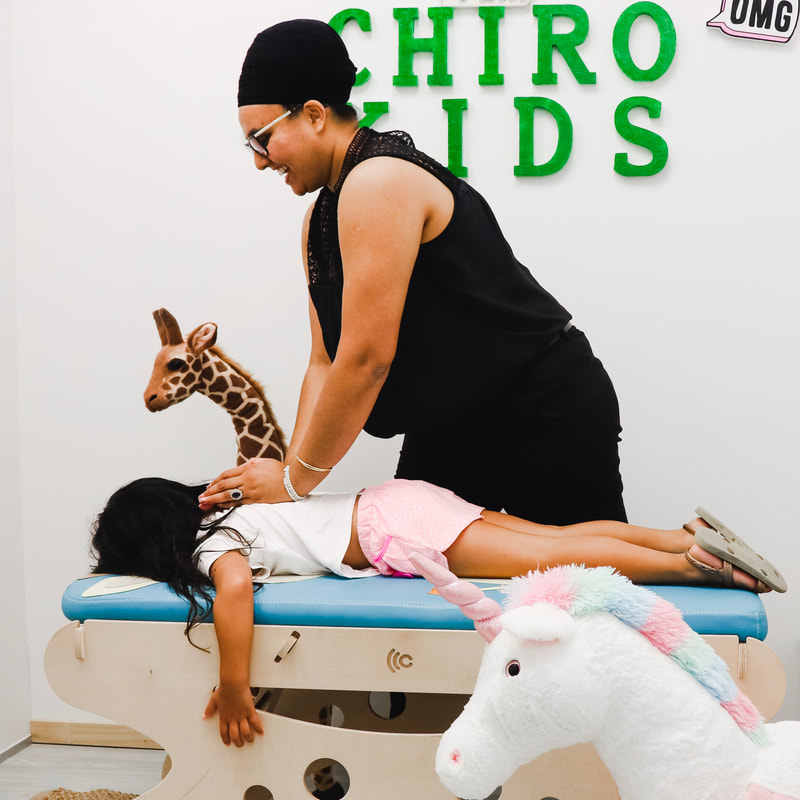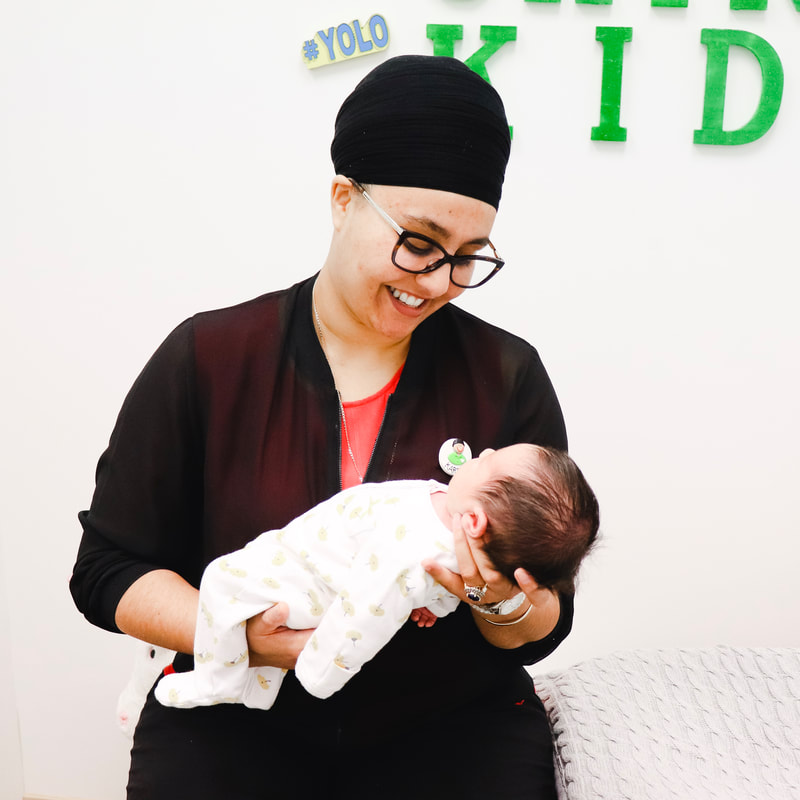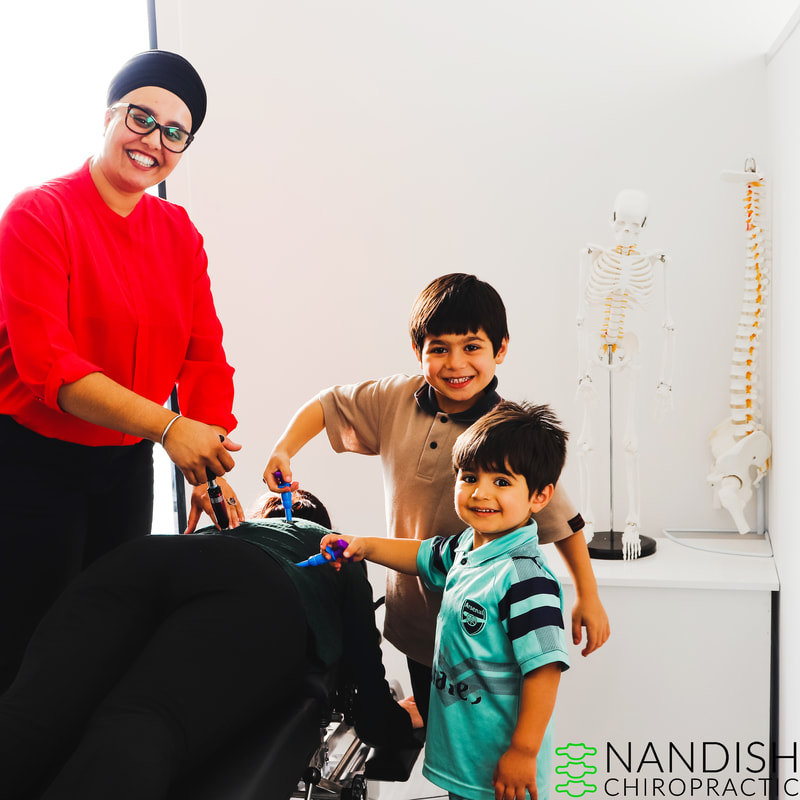|
Dr Karen Singh
Director & Principal Chiropractor We are delighted to announce the return of Dr. Karen Singh from maternity leave. She is an accomplished Chiropractor with a passion for mind body medicine and family spinal health with a proven track record of success in helping thousands of people understand and correct the root cause of spinal dysfunction. As a professional geek, she is always excited to learn about the science of mind-body medicine and spirituality. Dr Karen specialises in common adult presentations including pain, musculoskeletal dysfunction, headaches, migraines, anxiety, hormonal imbalances, difficulty sleeping and chronic fatigue. Dr. Singh emphasises the direct influence of the mind (psychology) on the body (physiology), underscoring the importance of holistic care to address the interconnected aspects of health. Modern day stress and overwhelm within the foundational neurological framework of the brain and body can lead to symptomatic dysfunction such as pain, tension and a constant state of dysfunction. These patterns of sensory overload affect children and adults alike. |
Areas of Interest
Dr Singh's expertise spans a wide range of disciplines including chiropractic care for babies to the elderly, behavioural physiology, neurology, obstetrics and paediatrics. She is particularly interested in
The Founding Principle in Healing is Trust
With hands on chiropractic care and a focus on mind body wellness, Dr Karen encapsulates her clinical wisdom and tools to assist in confronting issues from the root cause and striving to become the best version of yourself. At Nandish Chiropractic, trust is our cornerstone and we are committed to providing you with the support you need to foster a sense of ease and reduce neuromusculoskeletal rigidity in life.
Text Neck & Technology
In today's world saturated with screens TVs, smartphones, video games and watches - Dr. Singh emphasises the importance of managing screen time, especially for young children and focusing on correct ergonomics for adults. We recommend no screen time for children up to age 2 and kids between 2-5 years should limit screen time to 60 minutes daily. Screens emit blue light, which suppresses melatonin production, a hormone regulating sleep cycles. Sleep disruption, in turn, contributes significantly to neurobehavioral issues, milestone delays and pain.
Painkillers (Opioids) For Pain & Addiction
Recent research has found that one day of opioid (painkiller) usage carried a 6% chance of being on opioids one year later. After eight days of painkiller use, that chance increased to 13.5% and after 31 days of use, the chance spiked to nearly 30%. The evidence supports that chiropractic care plays a role in reducing opioid (painkiller) use for back pain, neck pain, headaches and other musculoskeletal pain. These are conditions where most medical practitioners would agree that painkillers (opioids) should be used only sparingly or not at all. If a trial of chiropractic care results in a decreased reliance on opioid use, I think that should be explored, especially considering that chiropractic is natural and safe.
Our mission as doctors of chiropractic is to improve movement, reduce pain, and ensure proper spine and extremity function, this more conservative approach to care offered by chiropractors continues to be a viable option to reduce the reliance on opioids for pain.
Recent research has demonstrated that those who used chiropractic had a 64% lower chance of receiving an opioid prescription compared to non-chiropractic users. Emerging evidence in the reduction of opioid use associated with chiropractic care.
Dr Singh's expertise spans a wide range of disciplines including chiropractic care for babies to the elderly, behavioural physiology, neurology, obstetrics and paediatrics. She is particularly interested in
- Chronic long-term pain (fibromyalgia)
- Unresolved injuries
- Spinal disc herniations and bulges
- Scoliosis
- Stress and anxiety management
- Complex regional pain
- Concussion and brain injuries
- Pregnancy care (breech/transverse presentation)
- Birth trauma (ventouse, forceps, OP presentations, and prolonged labour)
- Paediatrics (Erbs Palsy, plagiocephaly flat head, colic, reflux and distress)
- Neurobehavioral presentations (sensory processing, sensory overload, autism, ADHD, and ADD)
The Founding Principle in Healing is Trust
With hands on chiropractic care and a focus on mind body wellness, Dr Karen encapsulates her clinical wisdom and tools to assist in confronting issues from the root cause and striving to become the best version of yourself. At Nandish Chiropractic, trust is our cornerstone and we are committed to providing you with the support you need to foster a sense of ease and reduce neuromusculoskeletal rigidity in life.
Text Neck & Technology
In today's world saturated with screens TVs, smartphones, video games and watches - Dr. Singh emphasises the importance of managing screen time, especially for young children and focusing on correct ergonomics for adults. We recommend no screen time for children up to age 2 and kids between 2-5 years should limit screen time to 60 minutes daily. Screens emit blue light, which suppresses melatonin production, a hormone regulating sleep cycles. Sleep disruption, in turn, contributes significantly to neurobehavioral issues, milestone delays and pain.
Painkillers (Opioids) For Pain & Addiction
Recent research has found that one day of opioid (painkiller) usage carried a 6% chance of being on opioids one year later. After eight days of painkiller use, that chance increased to 13.5% and after 31 days of use, the chance spiked to nearly 30%. The evidence supports that chiropractic care plays a role in reducing opioid (painkiller) use for back pain, neck pain, headaches and other musculoskeletal pain. These are conditions where most medical practitioners would agree that painkillers (opioids) should be used only sparingly or not at all. If a trial of chiropractic care results in a decreased reliance on opioid use, I think that should be explored, especially considering that chiropractic is natural and safe.
Our mission as doctors of chiropractic is to improve movement, reduce pain, and ensure proper spine and extremity function, this more conservative approach to care offered by chiropractors continues to be a viable option to reduce the reliance on opioids for pain.
Recent research has demonstrated that those who used chiropractic had a 64% lower chance of receiving an opioid prescription compared to non-chiropractic users. Emerging evidence in the reduction of opioid use associated with chiropractic care.
|
Paediatric & Pregnancy Care
Dr. Singh recognises that cranial, dural, or spinal tension in infants can often be traced back to events during pregnancy or the birth process. Patterns of cranio-cervical dysfunction are frequently observed in our paediatric patients. Late-pregnancy discomfort can result from factors such as pelvic asymmetry, fascial tension, or torsion, exerting increased pressure on the baby's head and neck during birth. The rise in medical interventions during labor and delivery, including inductions, epidural anaesthesia and instrumentation (forceps and ventouse) has led to cranial and upper cervical tension in newborns. This tension can manifest as one-sided head tilting, spasmodic torticollis and heightened neural tone. Newborns may exhibit irritation and distress while breastfeeding, creating a challenging situation for both mother and baby. Orofacial and cranial tension can contribute to problems such as positional plagiocephaly (flat head), crying irritable babies, reflux and colic. The effects of this cascade of dysfunction can persist into childhood, with symptomatic presentations including sensory overload, behavioural issues and emotional dysregulation. Sensory disorders can arise from damage to the brain, brainstem, spine or nerves often stemming from neurological trauma at birth and leading to developmental and milestone delays. Your journey to wellness begins here and we are thrilled to be a part of it. Dr. Karen Singh and our dedicated team are ready to assist you in achieving the lasting changes you desire. To schedule an appointment, please contact us on (09)2129693 or book online here |
Self Care Workbook
This workbook is designed help you explore your psychology (mind) and physiology (body) as we embark on your journey to wellness. It is meticulously designed to facilitate the creation of new neural pathways (new habits) in your brain, allowing us to override existing unhelpful behavioural patterns that may no longer serve you. It's essential to remember that healing is a process that requires time, consistent practice and unwavering faith in the transformative power of this journey. As a self-professed neuroscience nerd, I have a particular passion for the fascinating field of mind-body medicine and its amazing healing properties.
This workbook is designed help you explore your psychology (mind) and physiology (body) as we embark on your journey to wellness. It is meticulously designed to facilitate the creation of new neural pathways (new habits) in your brain, allowing us to override existing unhelpful behavioural patterns that may no longer serve you. It's essential to remember that healing is a process that requires time, consistent practice and unwavering faith in the transformative power of this journey. As a self-professed neuroscience nerd, I have a particular passion for the fascinating field of mind-body medicine and its amazing healing properties.
